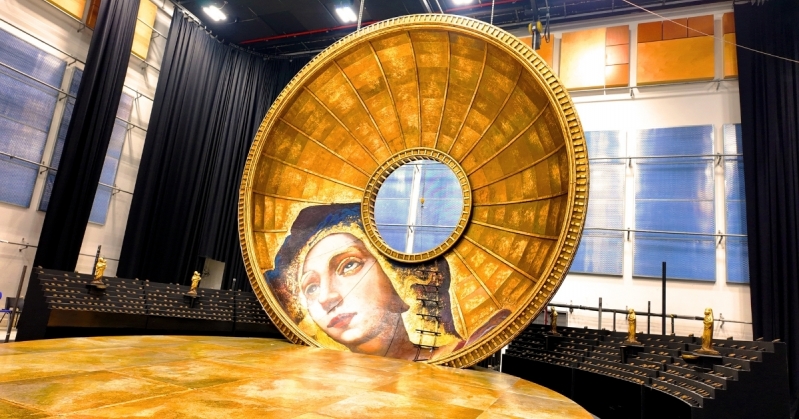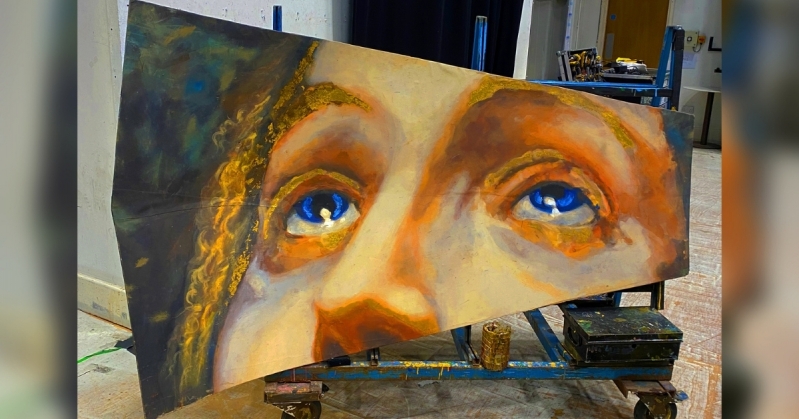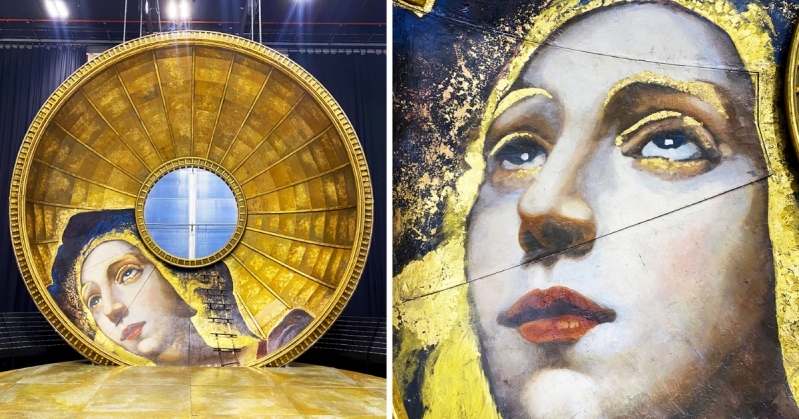Tosca is one of the most famous and well-loved operas, in the same league as classics such as Carmen, The Magic Flute and La traviata. There have been thousands of performances since its premiere in Rome in 1900, with endless ideas brought to the table for how to stage it in new, innovative ways. So, taking on this opera is no mean feat. However, we believe Director Edward Dick, along with his talented creative team, have nailed the task! Read on to learn all about how they chose to stage Tosca.

When imagining the set, Edward and Set Designer Tom Scutt were heavily inspired by The Pantheon in Rome. This famous Roman temple is visually and architecturally striking, and you can see clear echoes of it in the golden dome which acts as the set’s centrepiece. Made predominantly using steel, this dome is enormous, with a diameter of 6.4 metres and weighing a hefty 1,100 kilograms. It is also a sight for sore eyes, featuring a beautiful fresco of Mary Magdalene, which Cavaradossi supposedly paints during the performance. And just as The Pantheon has its oculus, the dome has a large hole at its centre, which is used for various effects and purposes. At times, a beam of light shines through, illuminating the darkness, creating strong atmosphere and reflecting the drama of the plot.

Lighting, designed by Lee Curran, is at the centre of this production of Tosca. The space is defined as a church by candles that are lit throughout the performance by an altar boy, and bright gold lights give the sense of an old Hollywood film. The lighting is also used to imitate sunlight, and is at times blindingly beautiful. The costumes, meanwhile, are highly stylish, particularly Tosca’s eye-catching Act Two gown. Designed by the BAFTA award-winning Fotini Dimou, these are 1950s-style with contemporary additions, creating a certain ambiguity as to the production’s time period. This is further emphasised by the props, as modern technology, including laptops, mobile phones and earpieces, make a feature.

Read what Edward said about his take on Tosca:
‘When you think about opera you think about Tosca. It’s one of the most essentially operatic pieces in the repertoire, an epic rollercoaster of a score in which politics, sex and religion collide. Puccini’s music mainlines emotion into the audience, and our aim was to create a production that’s as dramatic and emotionally direct as the score, an urgent political thriller that sweeps the audience off its feet and has a lot to say about the world in which we live now. I’m very much looking forward to revisiting this production with WNO. One of the things I’m most proud of is how directly it connects to audiences who are new to opera. If you enjoy an action thriller, I think you’ll love this.’
Tosca arrives in Cardiff in September, before journeying on to Southampton, Llandudno and Bristol. Book now while you still have the chance!



